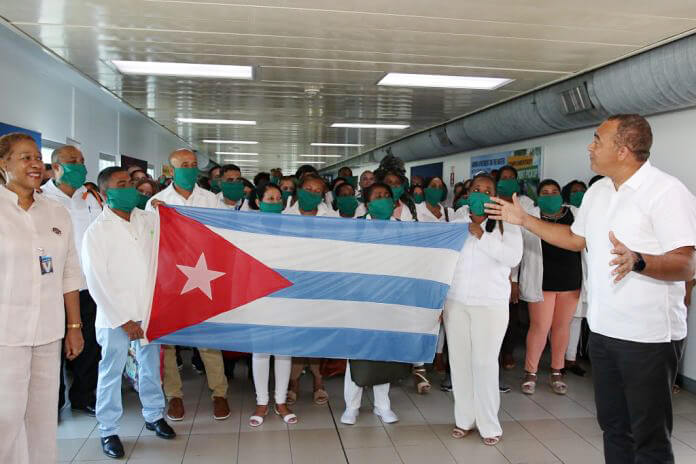≈Guido Sigler Amaya, the first of two political prisoners among a group of 11 dissidents who reject being exiled to Spain, has been freed from the Aguica prison in Matanzas, Cuba.
“He is very pale, but very upbeat,” opponent Oscar Sánchez told reporters in Havana, the Cuban capital. “He is now with his family and a few of his fellow fighters.”
The Cuban Catholic Church had announced last week that Sigler would be released “soon” together with government opponent Angel Juan Moya Acosta.
But, at the last minute, Moya rejected the offer of release, arguing that all the ill political prisoners should be freed first, according to the Miami-based Cuban Democratic Directory.
The developments took place at a time in which two other political prisoners from the so-called Group of 75 – Diosdado González Marrero, 48, and Pedro Arguelles Morán, 64 – launched a hunger strike demanding their immediate release and that of nine other conscientious prisoners.
Late last month, Blanca Alejandrina García de la Riva, González’s wife, also decided to begin a period of fasting in demand of her husband’s release.
In Havana, Moya’s wife, Berta Soler, spokeswoman for the Ladies in White dissident group, said she would respect her husband’s decision.
“Yes, I want my man at home, but there are always requests for those who are ill,” she said.
On Friday, Soler and Laura Pollán, leader of the Ladies in White, delivered a letter to the office of the Archbishop in Havana. It was addressed to Pope Benedict XVI and asked him to intercede for the release of González.
“I request your attention to what is happening to us, ask for your prayers, and that you intercede in this process that is lacking transparency,” the letter said.
Moya is serving a 20-year sentence in the Combinado del Este prison in Havana. Sigler received a similar sentence.
Sigler was the vice president of the illegal Alternative Option Independent Movement, which he founded with his brothers Ariel, a paraplegic released in June, and Miguel, released in 2005 due to poor health.
Elizardo Sánchez, president of the Cuban Commission of Human Rights and National Reconciliation, said the release of Sigler and potential release of Moya weren’t related to the hunger strikes of Arguelles, González and García de la Riva.
In July, Cuban President Raul Castro agreed to free all 52 prisoners remaining from the 2003 sweep, which targeted peaceful activists, social commentators and opposition leaders.
At the time, Catholic Cardinal Jaime Ortega said the deal called for the men to be out within four months, or by November.
Cuban official then quickly released 41 of the men, sending all but one to exile in Spain, along with their families.
But, in recent months, the process was delayed, as those still in jail refused to leave Cuban soil.


























